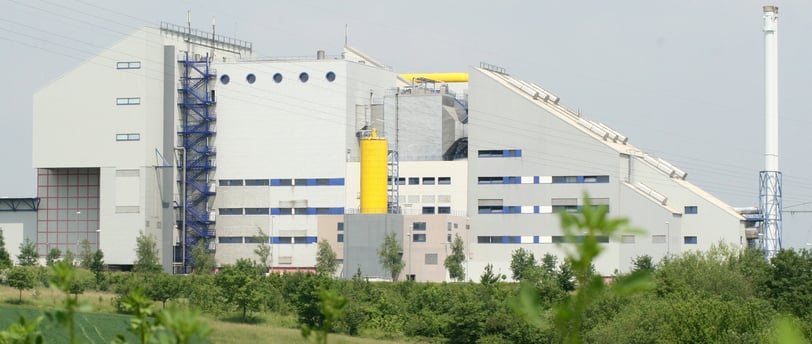Automating for Small Batch Production: Challenges and Smart Solutions
In today’s fast-changing manufacturing world, agility is everything—especially for small and medium-sized enterprises (SMEs) producing small batches or managing high product mix operations. Whether you’re making specialty chemicals, pharmaceuticals, or artisanal food and beverage products, one thing is clear: Traditional automation just doesn’t fit anymore.
SMART MANUFACTURING & INDUSTRY 4.0
5/8/20252 min read


High setup costs, rigid systems, and long changeover times make it difficult for small-batch manufacturers to compete and grow. But with smart, flexible automation, a new path is opening—one that’s scalable, affordable, and tailored to your unique needs.
Let’s dive into the challenges of small-batch production and explore how technologies like collaborative robots (cobots) and intelligent software are transforming the game.
The Unique Challenges of Small-Batch Production
Frequent Changeovers
Every new product run means cleaning, adjusting, reprogramming, and requalifying processes, costing precious time and resources.
High Product Variability
Small-batch manufacturers often produce a wide variety of products, requiring flexible equipment that can quickly adapt to new recipes, formats, or packaging.
Limited Floor Space
SMEs rarely have the luxury of large factory floors. Every machine and workflow must be space-efficient and multipurpose.
Cost Sensitivity
Large, custom-built automation solutions are often out of reach financially, especially when ROI calculations are stretched across many small production runs.
Maintaining Compliance
Industries like pharma and F&B require strict traceability, cleanliness, and documentation—even for small runs.
Traditional "big factory" automation wasn’t built for this. Flexible automation is.
Smart Solutions for Flexible, Small-Batch Automation
1. Collaborative Robots (Cobots)
Cobots are ideal for small-batch production because they:
Quickly switch between tasks with simple reprogramming.
Work safely alongside humans without expensive safety cages.
Handle repetitive, low-value tasks like palletizing, packing, loading/unloading machines, or even dosing and dispensing.
Scale with your business—start with one, add more as needed.
Example:
A specialty bakery uses a cobot to package cookies of different flavors and sizes. Switching products now takes minutes, not hours.
2. Smart Industrial Software
Software-driven automation brings intelligence to your operation:
Recipe management systems streamline changeovers.
MES (Manufacturing Execution Systems) optimize batch scheduling and traceability.
Data analytics platforms monitor performance and suggest continuous improvements.
Example:
A mid-sized dairy company uses a SmartCIP system to automate cleaning between small production runs, ensuring GMP compliance while minimizing downtime and water use.
3. Modular, Scalable Equipment
Instead of monolithic production lines, small-batch manufacturers are adopting:
Modular conveyor systems
Reconfigurable filling stations
Portable robotic cells
These allow you to rearrange your production line based on current demand.
Real-World Success: Small Manufacturer, Big Gains
A European specialty chemical producer faced constant bottlenecks due to frequent formula changes. After integrating a cobot for material handling and a lightweight MES system for batch control:
Changeover times dropped by 35%
Production capacity increased by 20%
Product loss during changeovers fell significantly
Most importantly, the investment paid off in just 18 months—a realistic timeline for SME manufacturers.
Getting Started: How to Transition to Smart Automation
Identify low-hanging fruit
Start with the most repetitive or ergonomically challenging tasks.
Choose flexible technology partners
Look for solutions that can grow with you—modular, reprogrammable, and easy to integrate.
Pilot, learn, expand
Begin with a small project, measure ROI, and expand automation step-by-step.
Empower your workforce
Train operators to program cobots and use smart systems. The goal is not to replace people but to enhance them.
Conclusion: Automation That Fits Your Size and Vision
Flexible automation is no longer reserved for big factories with massive budgets.
For small-batch, high-mix manufacturers, it’s an opportunity to gain speed, precision, and resilience—without sacrificing agility.
Cobots, smart software, and modular systems let SMEs punch far above their weight, meeting customer demands faster, safer, and more cost-effectively.
The future belongs to the nimble.
With the right automation strategy, your small batch production can be smarter, leaner, and more competitive than ever.
Thinking about automating your small-batch production?
At InnTech Automation, we help SME manufacturers find smart solutions tailored to their size, product mix, and goals.
Let’s start your journey toward flexible, scalable automation. 🚀
